
Jerash: The Ancient Jewel of Jordan
Jerash, located in Jordan, is a city that seamlessly marries the ancient with the contemporary. Known for its remarkably well-preserved ruins from the Roman Empire, Jerash offers a unique glimpse into history. The city's heart beats within its Greco-Roman cityscape, where the grandeur of the past whispers through every column and stone. As you stroll through the colonnaded streets, the ancient forum, and the monumental Hadrian's Arch, you are transported back in time. The stunning Oval Plaza and the grandeur of the South Theater with its perfect acoustics are awe-inspiring and provide a vivid picture of ancient Roman life. Beyond the ruins, Jerash is a vibrant modern city with bustling markets, delicious cuisine, and friendly locals. Its rich history is complemented by the warmth and hospitality of its people, making it a welcoming destination for travelers. The local cuisine is a delightful experience, with flavors that reflect the city's diverse cultural influences. Make sure to try the traditional Jordanian dishes at one of the many local restaurants. The city's location makes it an excellent base for exploring the northern region of Jordan, with easy access to other attractions like Ajloun Castle and the serene Ajloun Forest Reserve. Jerash also hosts the annual Jerash Festival of Culture and Arts, a celebration that brings the ancient city to life with music, dance, and theatrical performances. This festival is a highlight for both locals and tourists. Whether you're a history buff, a culture enthusiast, or simply looking for a unique travel experience, Jerash offers something for everyone. Its blend of ancient wonders and modern charm makes it a must-visit destination in Jordan.
Local tips in Jerash
- Visit early in the morning or late afternoon to avoid the midday heat and crowds.
- Wear comfortable shoes as the terrain can be uneven, especially around the ruins.
- Bring a hat and sunscreen; there is little shade within the archaeological site.
- Hire a local guide for a deeper understanding of the site's history and significance.
- Check the schedule for the Jerash Festival of Culture and Arts if visiting during summer.
- Explore local eateries to enjoy traditional Jordanian dishes like Mansaf and Falafel.
Jerash: The Ancient Jewel of Jordan
Jerash, located in Jordan, is a city that seamlessly marries the ancient with the contemporary. Known for its remarkably well-preserved ruins from the Roman Empire, Jerash offers a unique glimpse into history. The city's heart beats within its Greco-Roman cityscape, where the grandeur of the past whispers through every column and stone. As you stroll through the colonnaded streets, the ancient forum, and the monumental Hadrian's Arch, you are transported back in time. The stunning Oval Plaza and the grandeur of the South Theater with its perfect acoustics are awe-inspiring and provide a vivid picture of ancient Roman life. Beyond the ruins, Jerash is a vibrant modern city with bustling markets, delicious cuisine, and friendly locals. Its rich history is complemented by the warmth and hospitality of its people, making it a welcoming destination for travelers. The local cuisine is a delightful experience, with flavors that reflect the city's diverse cultural influences. Make sure to try the traditional Jordanian dishes at one of the many local restaurants. The city's location makes it an excellent base for exploring the northern region of Jordan, with easy access to other attractions like Ajloun Castle and the serene Ajloun Forest Reserve. Jerash also hosts the annual Jerash Festival of Culture and Arts, a celebration that brings the ancient city to life with music, dance, and theatrical performances. This festival is a highlight for both locals and tourists. Whether you're a history buff, a culture enthusiast, or simply looking for a unique travel experience, Jerash offers something for everyone. Its blend of ancient wonders and modern charm makes it a must-visit destination in Jordan.
When is the best time to go to Jerash?
Iconic landmarks you can’t miss
The Archaeological Site of Jerash
Experience the rich heritage of Jerash, where ancient Roman architecture meets stunning natural beauty in one of Jordan's most iconic historical sites.
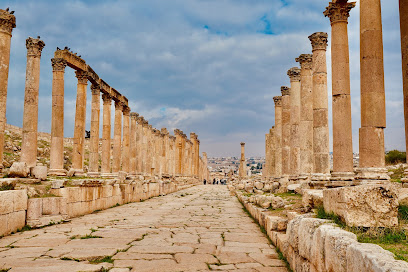
Lebanese House
Discover the authentic flavors of Lebanon at the Lebanese House in Jerash, where every dish tells a story of culinary heritage.
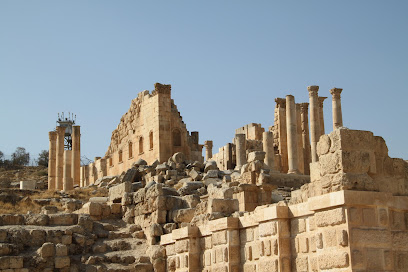
Jerash Visitor Center
Discover the gateway to Jerash's ancient Roman ruins at the Jerash Visitor Center - an enriching experience awaits every traveler.
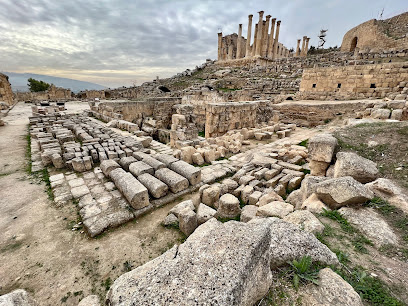
Arch of Hadrian
Explore the Arch of Hadrian, a monumental triumphal arch in Jerash, Jordan, showcasing stunning Roman architecture and rich historical significance.
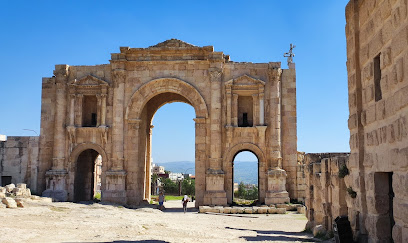
Oval Plaza
Explore the historic Oval Plaza in Jerash, a stunning landmark showcasing ancient Roman architecture and vibrant local culture.
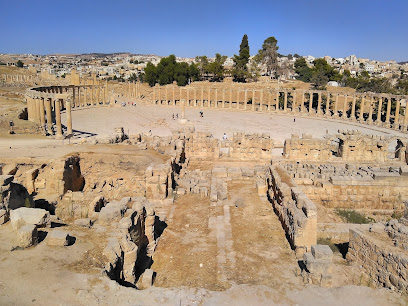
Southern Theatre
Explore the Southern Theatre in Jerash, a stunning amphitheater showcasing the rich heritage of Roman architecture and performing arts in Jordan.
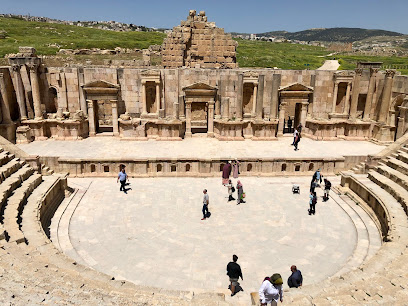
Temple of Artemis
Explore the Temple of Artemis in Jerash, a stunning ancient ruin showcasing Roman architectural grandeur and rich historical significance.
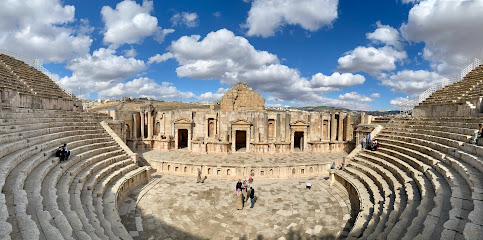
Jerash Garden
Explore the enchanting blend of amusement and history at Jerash Garden, a serene escape in the heart of Jerash, Jordan.
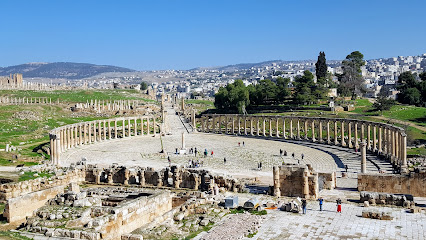
Dibbeen Forest Reserve
Explore the serene landscapes of Dibbeen Forest Reserve, a national treasure in Jordan, perfect for nature lovers and adventure seekers.
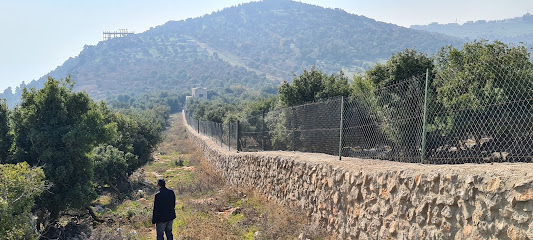
Temple of Zeus
Discover the awe-inspiring Temple of Zeus in Jerash, a historical landmark showcasing the grandeur of Roman architecture and rich cultural heritage.
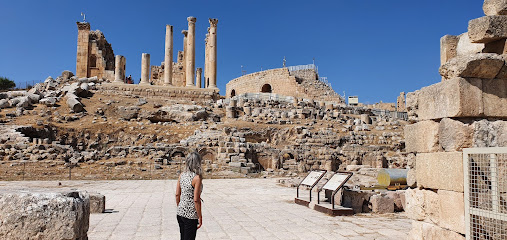
Jerash Visitor Free Car Parking
Explore the ancient wonders of Jerash with convenient free parking at Jerash Visitor Free Car Parking, just steps away from historic sites.
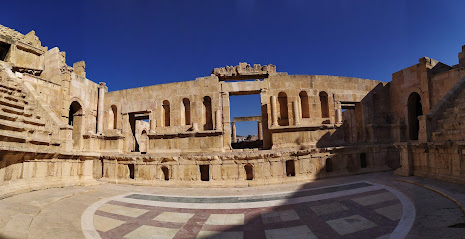
Park Greater Jerash Municipality
Experience the tranquil beauty of Park Greater Jerash Municipality, a serene garden oasis in the heart of historic Jerash, Jordan.
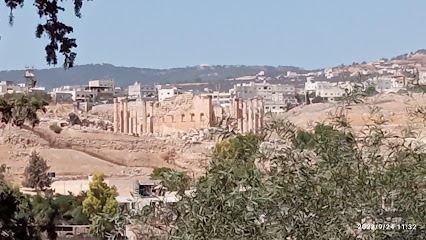
Jerash Archaeological Museum
Explore the Jerash Archaeological Museum, home to captivating artifacts from the Roman Empire, nestled beside the ancient ruins of Jerash.
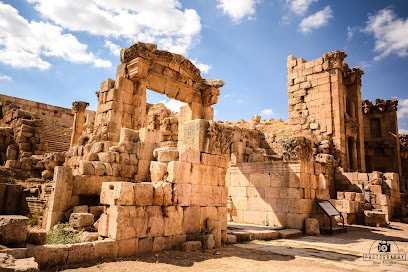
House Jasmine Park
Explore House Jasmine Park in Jerash, a serene retreat featuring lush gardens, perfect for picnics, leisurely strolls, and family fun amidst nature's beauty.
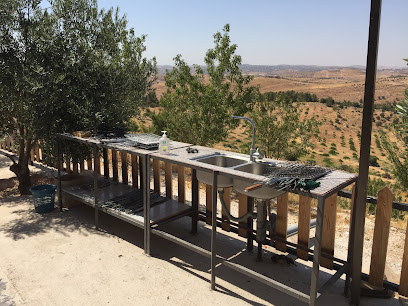
Nymphaeum
Explore the historic Nymphaeum in Jerash, a stunning testament to Roman architecture and ancient Jordan's rich cultural heritage, perfect for history enthusiasts.
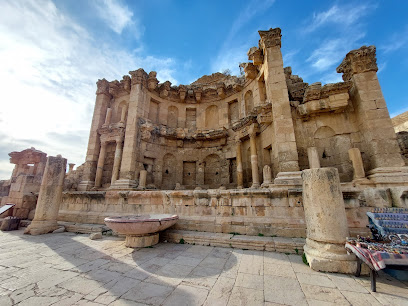
Unmissable attractions to see
Archaeological Site of Jerash
Explore the magnificent ruins of Jerash, one of the best-preserved Roman cities in the world, and immerse yourself in Jordan's rich historical tapestry.
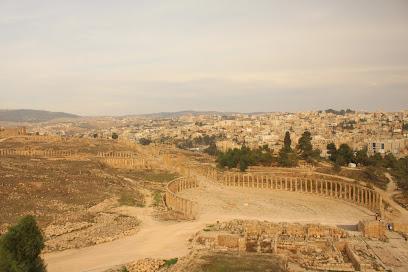
Ajloun Castle
Explore Ajloun Castle, a majestic 12th-century fortress in Jordan, rich in history and breathtaking landscapes.
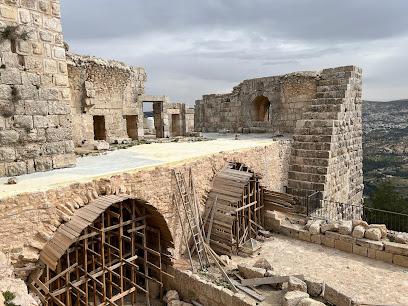
King Abdullah I Mosque
Experience the majestic beauty of King Abdullah I Mosque in Amman, a stunning architectural gem that embodies Islamic culture and hospitality.
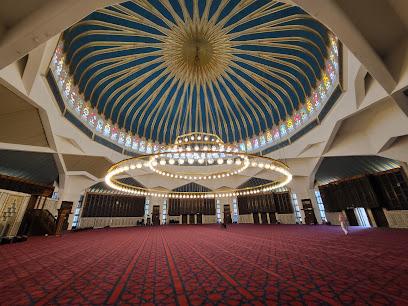
Beit She'an National Park
Explore Beit She'an National Park, a UNESCO World Heritage site rich in ancient history, stunning ruins, and breathtaking natural beauty in Israel's Jordan Valley.
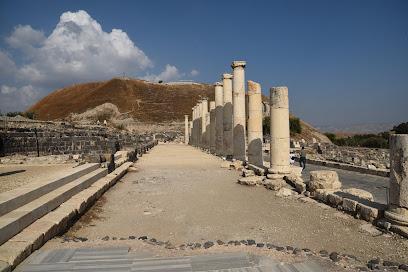
King Abdullah II Park
Explore the green heart of Amman at King Abdullah II Park, where serenity meets recreation in a stunning urban oasis.
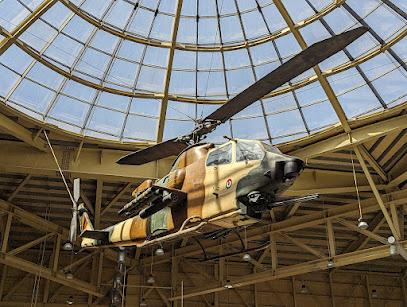
The Royal Automobile Museum
Explore the Royal Automobile Museum in Amman, Jordan - A fascinating journey through the history of automobiles and their cultural significance.
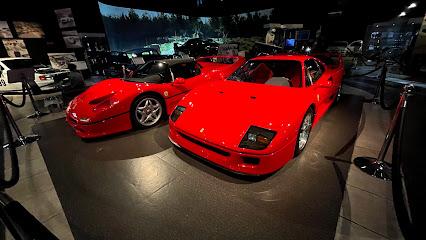
The Jordan Museum
Explore the heart of Jordan's history at The Jordan Museum in Amman, showcasing ancient artifacts and rich cultural narratives.
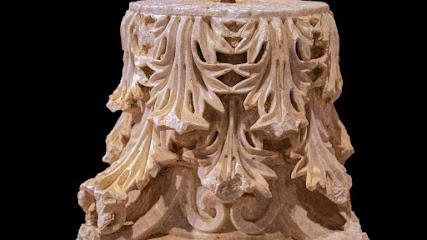
The Royal Tank Museum متحف الدبابات الملكي
Explore Jordan's military heritage at the Royal Tank Museum, showcasing a rich collection of armored vehicles and historical exhibits.
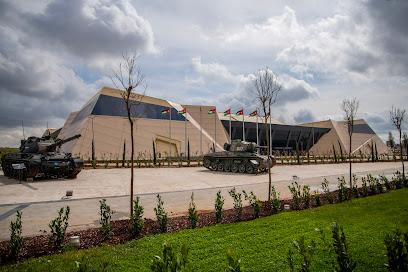
Jordan Star National Park
Explore Jordan Star National Park, a breathtaking blend of nature and adventure in the heart of Israel, perfect for hiking and outdoor activities.
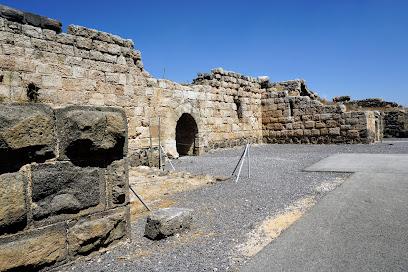
Cave Of The Seven Sleepers (Ashabul Kahf)
Visit the Cave of the Seven Sleepers in Amman, where history and legend intertwine in a breathtaking natural setting.
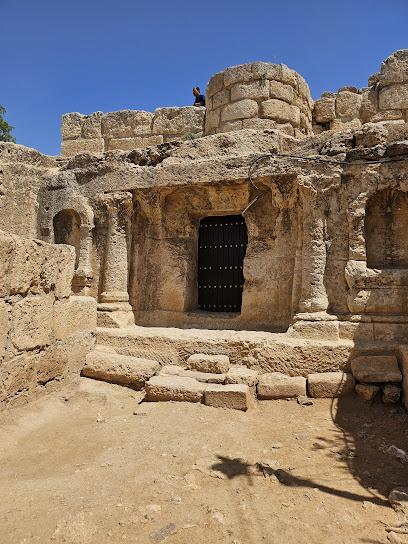
Roman Nymphaeum
Explore the Roman Nymphaeum in Amman, a breathtaking historical landmark showcasing ancient architecture and rich cultural heritage.
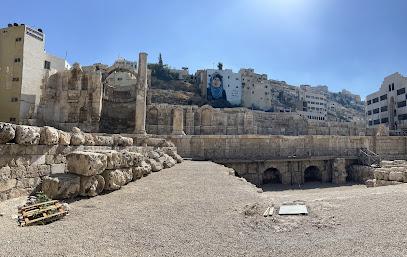
Trax Jo
Discover Trax Jo in Amman: a dynamic recreation center offering sports, relaxation, and community events.
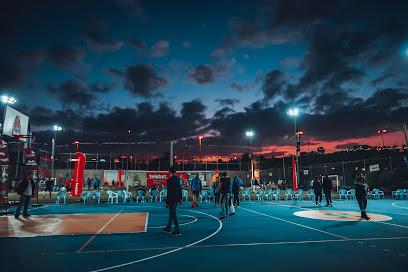
Abu Darwish Mosque
Explore the stunning Abu Darwish Mosque, a masterpiece of Islamic architecture with breathtaking views of Amman, steeped in cultural heritage.
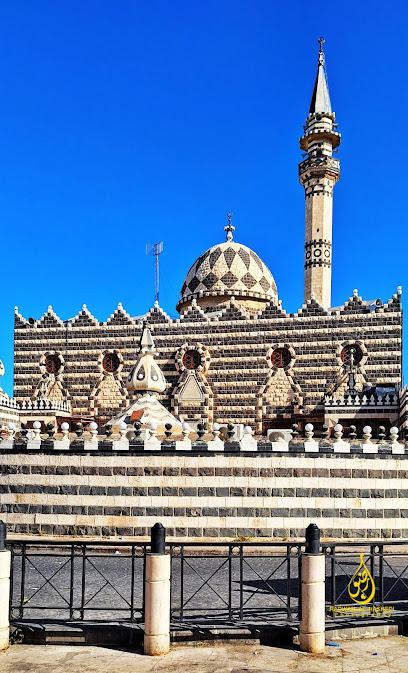
Rainbow Street
Discover Rainbow Street in Amman, a vibrant hub of culture, cuisine, and creativity that captures the essence of Jordanian life.
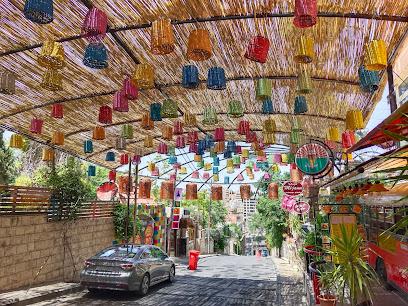
Arch of Hadrian
Explore the Arch of Hadrian in Jerash, a breathtaking Roman monument that opens the gateway to ancient history and architectural splendor.
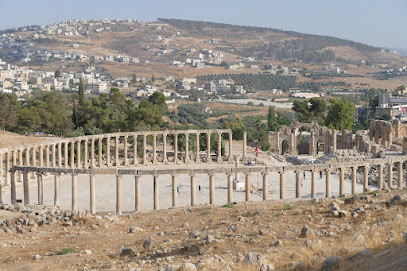
Essential places to dine
Lebanese House
Experience authentic Lebanese flavors at the Lebanese House in Jerash – where tradition meets taste.
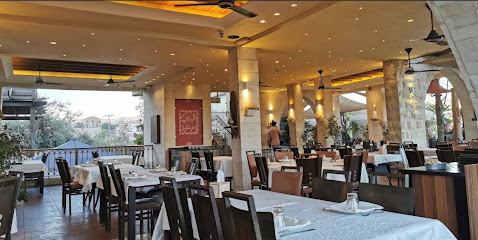
Restaurants and Gardens Green Valley
Experience exquisite Jordanian cuisine amidst breathtaking gardens at Restaurants and Gardens Green Valley in Jerash.
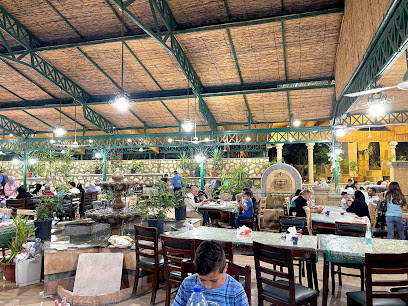
YaHala Jerash Restaurant and Park
Experience authentic Jordanian flavors at YaHala Jerash Restaurant and Park, where culinary excellence meets beautiful surroundings.
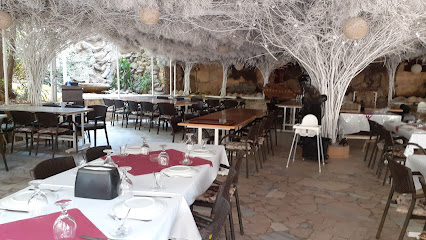
Artemis Restaurant - مطعم ارتيمس السياحي
Discover authentic Jordanian flavors at Artemis Restaurant in Jerash - where tradition meets taste amidst ancient ruins.
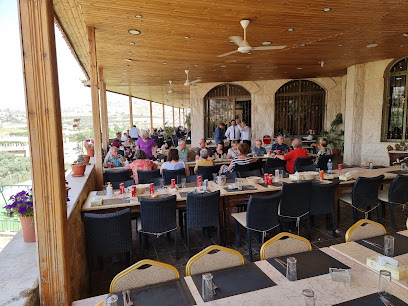
Nowwara
Experience authentic Jordanian cuisine at Nowwara in Jerash - where tradition meets taste in every dish.
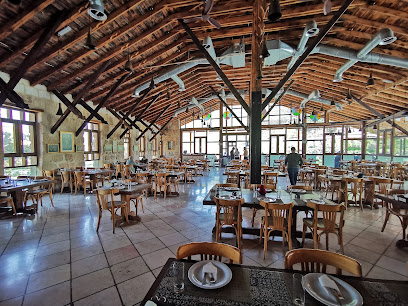
Old Roman Restaurant
Savor authentic flavors at Old Roman Restaurant while immersing yourself in the ancient beauty of Jerash's archaeological site.
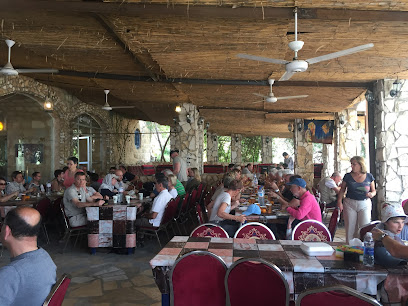
Abu Ahmed Restaurant
Discover authentic Jordanian cuisine at Abu Ahmed Restaurant in Jerash – where tradition meets flavor in every bite.
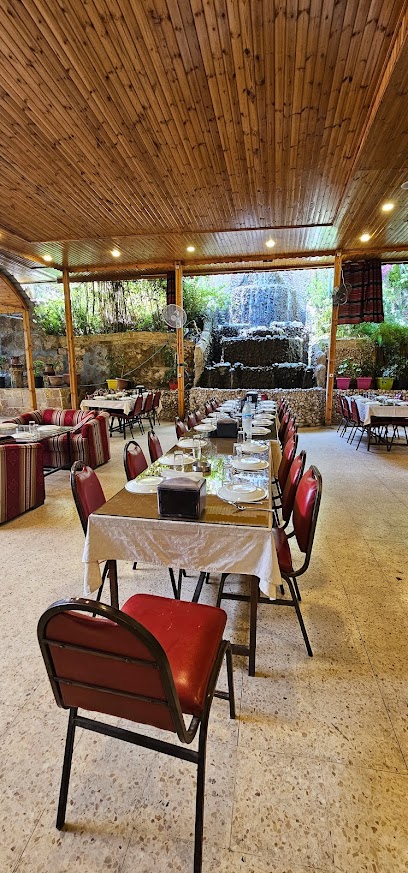
Lolot Alrawada restaurant
Discover authentic Jordanian cuisine at Lolot Alrawada Restaurant in Jerash - where every meal tells a story.
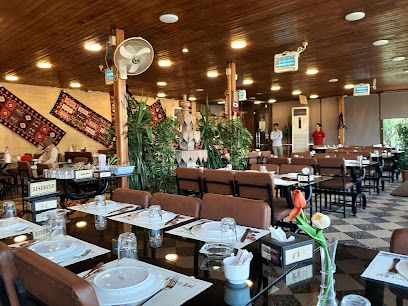
مطعم ريف المزرعه
Discover authentic Jordanian cuisine at مطعم ريف المزرعه in Jerash – where tradition meets taste in every dish.
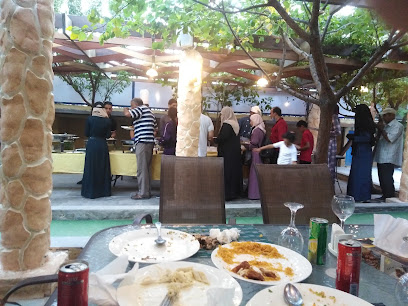
Qasr Alsultan Restaurant
Discover authentic Jordanian flavors at Qasr Alsultan Restaurant in Jerash – where tradition meets taste.
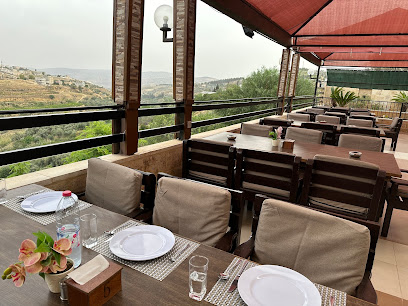
داريا للمطاعم جرش
Experience authentic Jordanian flavors at Darayya Restaurant in Jerash—where tradition meets taste in a charming setting.
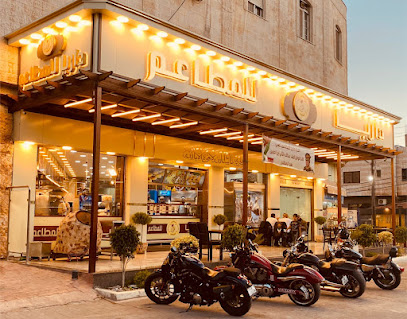
مطعم اعمدة باب عمان
Discover authentic Eastern European cuisine at مطعم اعمدة باب عمان in Jerash - where tradition meets taste in every dish.
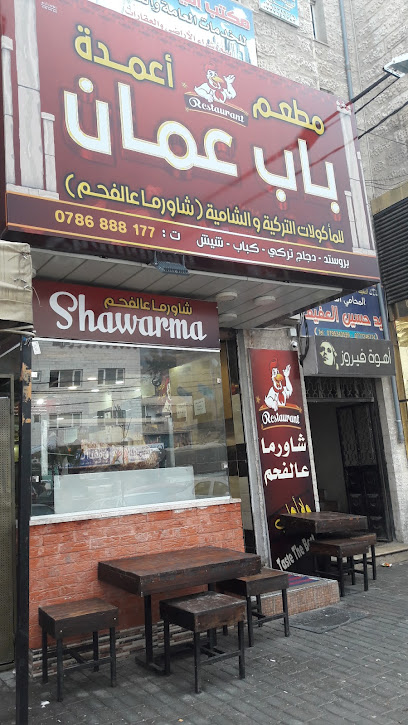
مطعم زهرة بلقيس Zahrat Ballkis Mandi
Experience authentic Middle Eastern cuisine at Zahrat Ballkis Mandi in Jerash – where every bite tells a story.
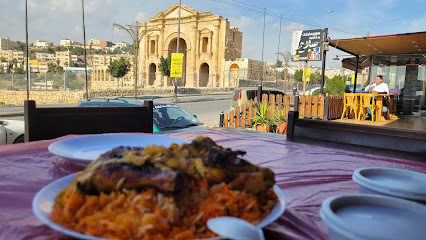
Alkyam alarabi
Discover authentic Jordanian cuisine at Alkyam alarabi in Jerash - where tradition meets taste in a warm and welcoming atmosphere.
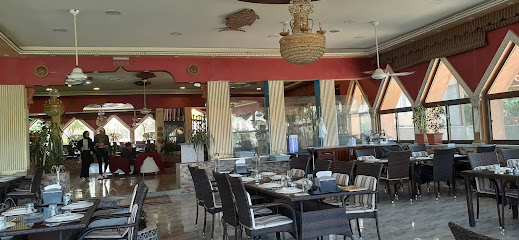
مطعم ابو الذهب
Savor authentic falafel and traditional breakfasts at Abu Dhahab Restaurant in Jerash—where flavor meets affordability.
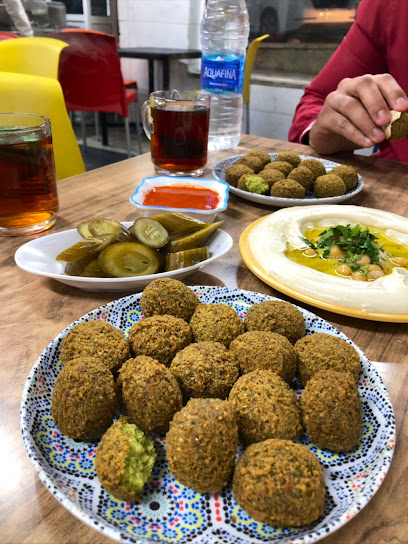
Markets, malls and hidden boutiques
The Archaeological Site of Jerash
Explore the Archaeological Site of Jerash, a stunning Roman city showcasing ancient ruins, culture, and history in the heart of Jordan.
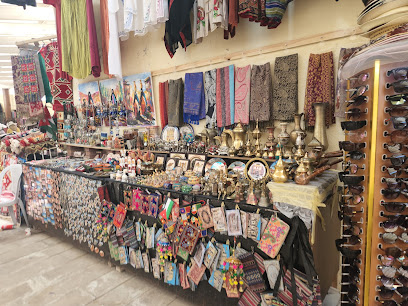
Jarash Mall
Experience shopping, dining, and local culture at Jarash Mall, a vibrant center in Amman, Jordan for every traveler.
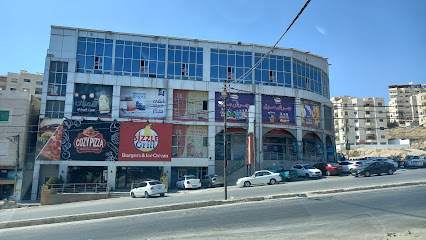
Oval Plaza
Discover the grandeur of Oval Plaza in Jerash, a stunning historical landmark showcasing Roman architecture and vibrant local culture.
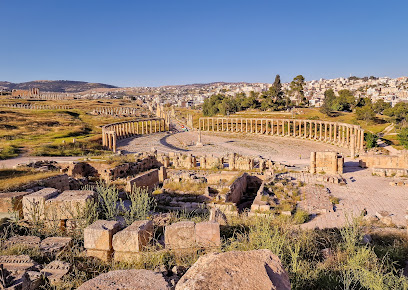
Al-Saloon Al-Akhdar Sweets
Discover the sweet side of Jerash at Al-Saloon Al-Akhdar Sweets, where tradition meets flavor in every delightful bite.
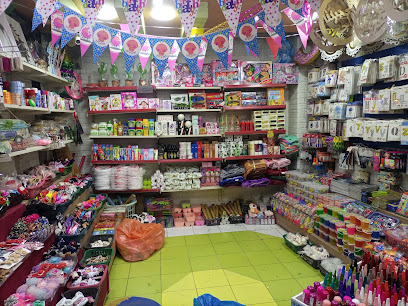
AlHaris Dairy
Discover the authentic flavors of Jordan at AlHaris Dairy in Jerash, where fresh dairy products bring local tradition to life.
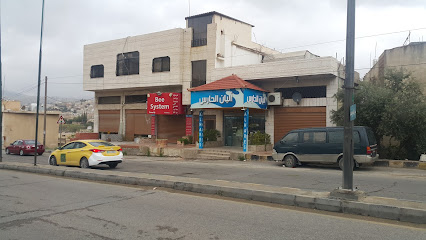
ألبان الحارس
Experience the authentic taste of Jordanian dairy at ألبان الحارس, a must-visit dairy store in Jerash offering fresh, local specialties.
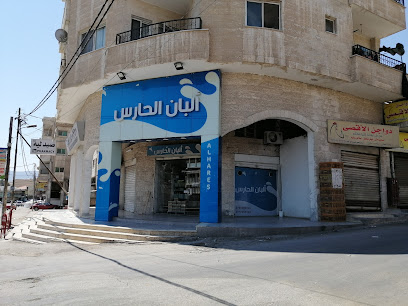
الابراج للهدايا والعطور
Explore الابراج للهدايا والعطور in Jerash for unique gifts and exquisite perfumes that capture the essence of local culture.

Khodroj Aromatherapy
Explore Khodroj Aromatherapy in Jerash for a unique grocery shopping experience focused on natural and aromatic wellness products.
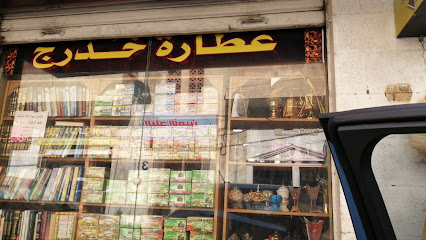
First Step
Explore the essence of Jordanian culture at First Step, your go-to home goods store in the heart of Jerash, showcasing unique local crafts and essentials.

ضراغمه
Explore the unique clothing styles of Jordan at ضراغمه in Jerash – a treasure trove of traditional and contemporary attire.
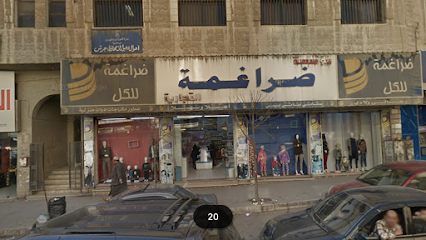
عطارة المروى / Al-Marwa Aromatherapy
Discover the essence of natural wellness at Al-Marwa Aromatherapy in Jerash - a premier destination for organic herbs and essential oils.
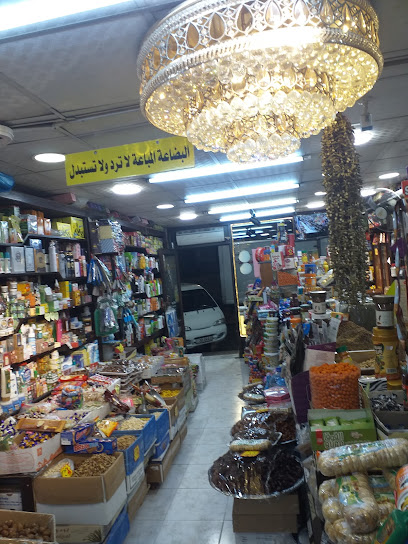
Coffee Time-وقت القهوة
Discover the flavors of Jerash at Coffee Time, a beloved supermarket offering local and international products in a warm atmosphere.
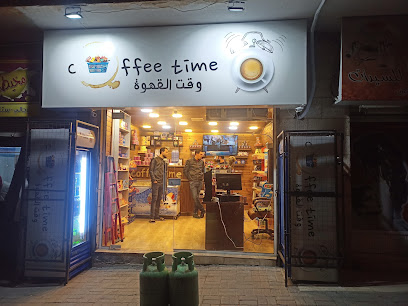
محمص أبو سليمان
Explore Mahmas Abu Suleiman in Jerash for an unforgettable nut shopping experience, featuring fresh, roasted delights and local flavors.
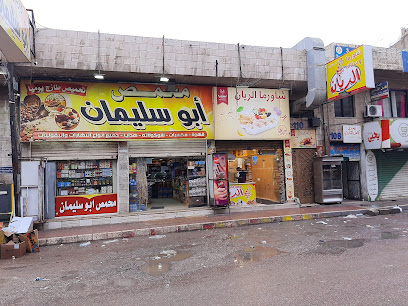
العفيف لمواد البناء
Explore Afeef Building Materials in Jerash for top-quality construction supplies and expert guidance, perfect for all your building needs.
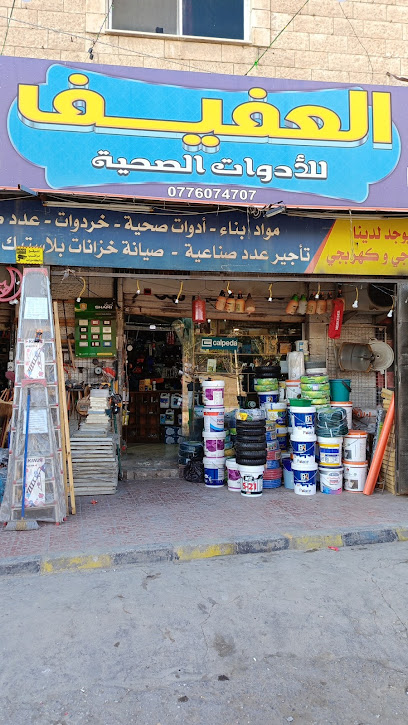
معرض الفالوجي للساعات
Discover a stunning collection of watches at معــرض الفالوجي للساعات in Jerash, where elegance meets affordability in a welcoming atmosphere.
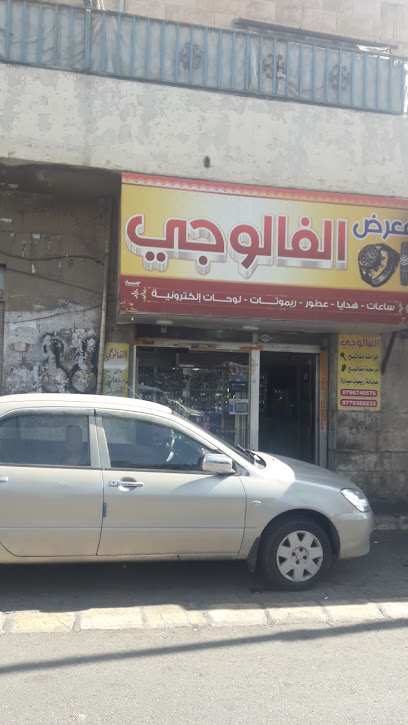
Essential bars & hidden hideouts
Lebanese House
Experience the authentic flavors of Lebanon at Lebanese House in Jerash, an exquisite restaurant offering a diverse menu for all palates.
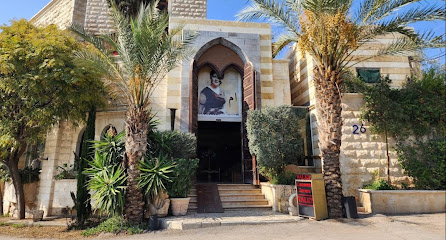
Restaurants and Gardens Green Valley
Experience the perfect fusion of delectable cuisine and serene gardens at Restaurants and Gardens Green Valley in Jerash, a culinary oasis for every traveler.
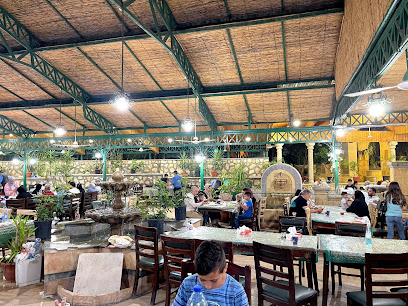
YaHala Jerash Restaurant and Park
Discover the taste of Jordan at YaHala Jerash, where exquisite dining meets the beauty of nature in the heart of Jerash.
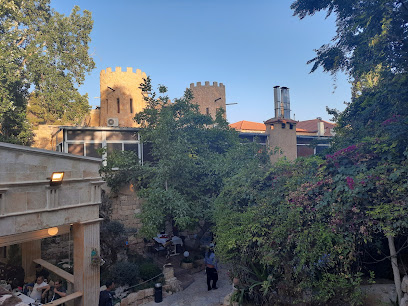
Artemis Restaurant - مطعم ارتيمس السياحي
Explore Jerash and indulge in authentic Jordanian flavors at Artemis Restaurant, the perfect culinary stop for every traveler.
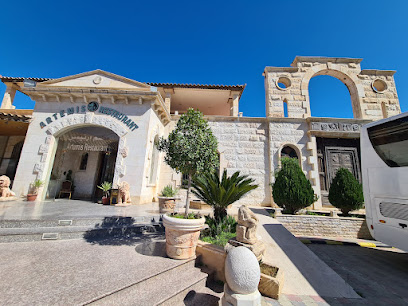
Nowwara
Experience the authentic taste of Jordan at Nowwara, a must-visit restaurant in Jerash, blending tradition and flavor in a warm atmosphere.
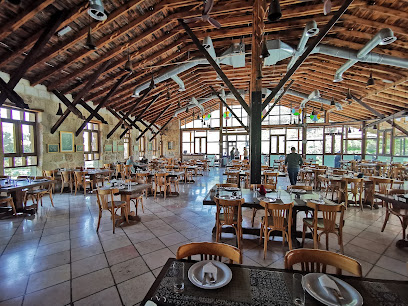
Old Roman Restaurant
Experience the rich flavors of Jordan at the Old Roman Restaurant, where tradition meets history near the stunning ruins of Jerash.
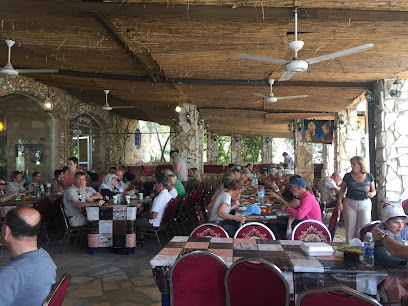
Cheesy Grill
Experience the authentic taste of Middle Eastern cuisine at Cheesy Grill, a must-visit restaurant in Jerash offering delicious shawarma and more.
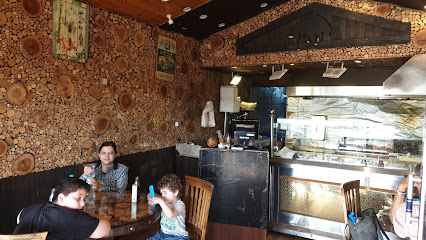
Cello cafè & restaurant
Experience a culinary journey at Cello Café & Restaurant in Jerash, where authentic flavors meet modern dining in a cozy ambiance.
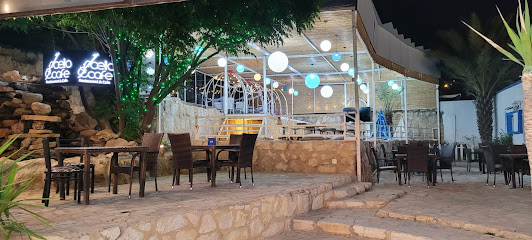
Jordan Wine House
Experience the perfect blend of exquisite wines and delightful brunch at Jordan Wine House in the scenic Ajloun region of Jordan.
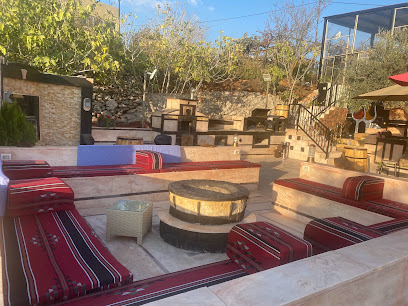
مطعم وشلالات قصر الماس restuarant QserALmas
Savor authentic Jordanian cuisine in a serene setting with stunning waterfall views at QserALmas Restaurant in Jerash.
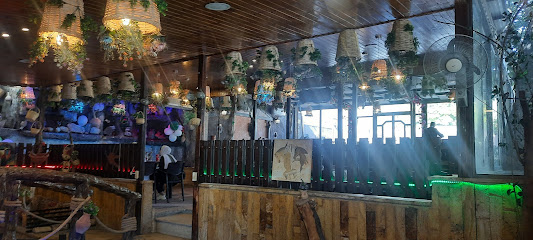
Cheers liquor store
Explore the rich selection of local and international spirits at Cheers Liquor Store, a vibrant bar perfect for tourists in Jordan.
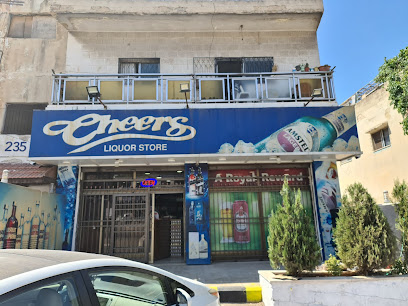
Shesha Restaurant & Cafe
Discover the rich flavors of Jordanian cuisine at Shesha Restaurant & Cafe in Jerash, a perfect stop for food lovers and history enthusiasts.
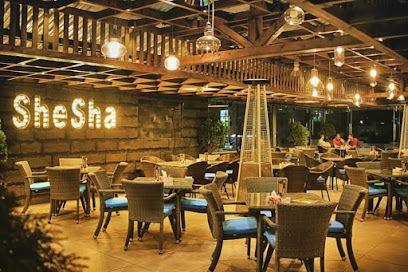
Jerash Rest House
Discover Jerash Rest House: Your cozy coffee shop haven amidst the ancient wonders of Jerash, Jordan.
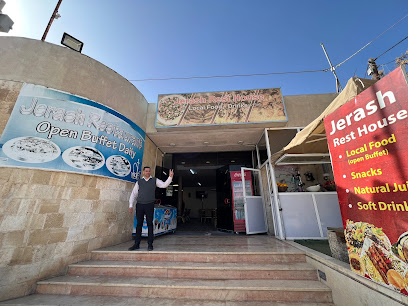
Forest View Jerash
Discover the culinary gems of Jordan while enjoying breathtaking views at Forest View Jerash, a must-visit restaurant in Jerash.
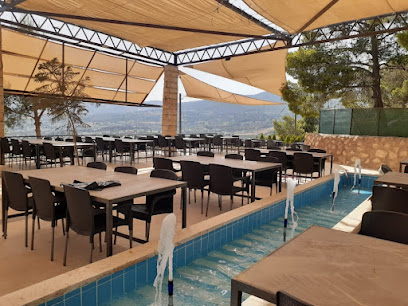
Travel experiences inspired by this city
Explore more travel diariesLocal Phrases
-
- HelloMarhaba
[Mar-ha-ba] - GoodbyeMa'a as-salama
[Ma-a as-sa-la-ma] - YesNa'am
[Na-am] - NoLa
[La] - Please/You're welcomeMin fadlik
[Min fad-lik] - Thank youShukran
[Shuk-ran] - Excuse me/SorryAfsos
[Af-sos] - How are you?Kif halak?
[Kif ha-lak] - Fine. And you?Mni7. W inta?
[Mni-h. W in-ta] - Do you speak English?Bet7ak ingilizi?
[Bet-hak in-gi-li-zi] - I don't understandMa fahimt
[Ma fa-himt]
- HelloMarhaba
-
- I'd like to see the menu, pleaseBiddi ara il menyu, min fadlik
[Bid-di a-ra il men-yu, min fad-lik] - I don't eat meatMa bakkul laHm
[Ma bak-kul la-Hm] - Cheers!Sa7tein!
[Sa-h-tain] - I would like to pay, pleaseBiddi adfa', min fadlik
[Bid-di ad-fa, min fad-lik]
- I'd like to see the menu, pleaseBiddi ara il menyu, min fadlik
-
- Help!3awni!
['A-w-ni] - Go away!Ruh!
[Ruh] - Call the Police!id' il shurta!
[id' il shur-ta] - Call a doctor!id' tabib!
[id' ta-bib] - I'm lostGhawet
[Gha-wet] - I'm illAna mareed
[Ana ma-reed]
- Help!3awni!
-
- I'd like to buy...Biddi ashtri...
[Bid-di ash-tri] - I'm just lookingAna bas bishuf
[Ana bas bi-shuf] - How much is it?Kam biseer?
[Kam bi-seer] - That's too expensiveHatha ghali kteer
[Ha-tha gha-li kteer] - Can you lower the price?Bitekhaffif el siir?
[Bit-kha-ffi-fel siir]
- I'd like to buy...Biddi ashtri...
-
- What time is it?Kam el sa3a?
[Kam el sa-a] - It's one o'clockSaa wahda
[Saa wah-da] - Half past (10)Nus s3a
[Nus sa-a] - MorningSaba7
[Sa-ba-h] - AfternoonDhuhr
[Dhu-hr] - EveningMasaa
[Ma-saa] - YesterdayAms
[Ams] - TodayEl yom
[El yom] - TomorrowGhadan
[Gha-dan] - 1Wa7ed
[Wa-hed] - 2Itnen
[I-t-nen] - 3Tlata
[Tla-ta] - 4Arba3a
[Ar-ba-a] - 5Khamsa
[Kham-sa] - 6Sitta
[Sit-ta] - 7Saba3a
[Sa-ba-a] - 8Thamania
[Tha-ma-nia] - 9Tis3a
[Tis-sa] - 10Ashara
[A-sha-ra]
- What time is it?Kam el sa3a?
-
- Where's a/the...?Wayn il...
[Wayn il] - What's the address?Shu el 3enwan?
[Shu el 3en-wan] - Can you show me (on the map)?Bitradeeni (3ala il khareeta)?
[Bit-ra-dee-ni (3ala il kha-ree-ta)] - When's the next (bus)?Emta il bus il tali?
[Em-ta il bus il ta-li] - A ticket (to ....)Tiket (ila ...)
[Ti-ket (ila ...)]
- Where's a/the...?Wayn il...
History of Jerash
-
Jerash, known in ancient times as Gerasa, has a history that dates back to the Neolithic period. Archaeological evidence suggests that the area was inhabited as early as 7500 BC. The city gained prominence during the Hellenistic period under the Seleucid Empire after the conquests of Alexander the Great.
-
Jerash flourished under Roman rule after General Pompey conquered the region in 63 BC. The city became part of the Decapolis, a group of ten cities on the eastern frontier of the Roman Empire. This period marks the golden age of Jerash, where it saw extensive urban development including the construction of theaters, temples, and public squares.
-
Jerash is renowned for its well-preserved Roman architecture. Key structures include the Oval Plaza, a massive public square; the Cardo, a colonnaded street running through the city; the North and South Theaters; and the Temple of Artemis, dedicated to the city's patron goddess. These structures exemplify Roman engineering and urban planning.
-
During the Byzantine period, Jerash continued to thrive and became a center of Christianity. Numerous churches were built, adorned with intricate mosaics. The city experienced a decline after the Persian invasion in 614 AD, and later during the early Islamic period starting in 636 AD, though it remained inhabited.
-
Jerash experienced a significant decline during the medieval period and was largely abandoned by the 12th century. It faded from historical records until it was rediscovered by German explorer Ulrich Jasper Seetzen in 1806. Subsequent archaeological excavations in the 20th century unveiled its ancient grandeur, making it a key site for understanding Roman provincial life.
-
Today, Jerash is one of Jordan's major tourist attractions, drawing visitors from around the world. The annual Jerash Festival of Culture and Arts, held among the ancient ruins, celebrates the city's rich cultural heritage through music, dance, and theatrical performances. This event underscores Jerash's enduring legacy as a crossroads of history and culture.
Jerash Essentials
-
Jerash is located in northern Jordan, approximately 48 kilometers north of Amman, the capital city. The nearest airport is Queen Alia International Airport in Amman. From the airport, you can hire a taxi or use ride-sharing services to reach Jerash. Public buses and minibuses (known as 'servees') also operate between Amman and Jerash, providing an affordable transportation option. The journey by road typically takes around 1 hour.
-
Once in Jerash, getting around is relatively easy. The archaeological site is within walking distance from most hotels and accommodations. For longer trips within the town or to nearby areas, local taxis are readily available. It is advisable to agree on the fare before starting your journey. There are also car rental services in Amman if you prefer the flexibility of driving yourself.
-
The official currency in Jordan is the Jordanian Dinar (JOD). Credit cards are widely accepted in hotels, restaurants, and larger shops, but it is advisable to carry cash for smaller establishments and local markets. ATMs are available in Jerash, but withdrawing cash in Amman before traveling to Jerash is recommended to ensure you have sufficient funds.
-
Jerash is generally considered a safe destination for tourists. However, like any tourist destination, it is important to remain vigilant. Petty crimes, such as pickpocketing, can occur in crowded areas. It is advisable to avoid walking alone late at night and to keep an eye on your belongings. There are no specific high-crime areas targeting tourists, but staying aware of your surroundings is always a good practice.
-
In case of emergency, dial 911 for immediate assistance. Jerash has local police stations and medical facilities to provide help. It is recommended to have travel insurance that covers medical emergencies. For minor health issues, there are pharmacies in Jerash where you can purchase over-the-counter medications.
-
Fashion: Do dress modestly, especially when visiting religious sites. Avoid wearing revealing clothing. Religion: Do respect local customs and traditions. When entering mosques or religious sites, dress conservatively and cover your head if required. Public Transport: Do be respectful and courteous to fellow passengers. Don’t eat or drink on public transport. Greetings: Do greet people with a handshake or a nod. Using ‘As-salamu alaykum’ (peace be upon you) is a polite way to greet locals. Eating & Drinking: Do try local dishes and accept food offerings graciously. Don’t refuse hospitality, as it is considered impolite.
-
To experience Jerash like a local, visit the local markets where you can purchase fresh produce and traditional Jordanian goods. Engage with locals, as they are often friendly and willing to share stories about the city’s history and culture. Don't miss the Jerash Festival of Culture and Arts held annually in July, featuring traditional music, dance, and performances. Also, consider visiting the Jerash Archaeological Museum to gain deeper insight into the ancient history of the city.
Trending Landmark in Jerash
-
The Archaeological Site of Jerash
-
Lebanese House
-
Jerash Visitor Center
-
Arch of Hadrian
-
Oval Plaza
-
Southern Theatre
-
Temple of Artemis
-
Jerash Garden
-
Dibbeen Forest Reserve
-
Temple of Zeus
-
Jerash Visitor Free Car Parking
-
Park Greater Jerash Municipality
-
Jerash Archaeological Museum
-
House Jasmine Park
-
Nymphaeum
Nearby Cities to Jerash
-
Things To Do in Mafraq
-
Things To Do in Salt
-
Things To Do in Irbid
-
Things To Do in Amman
-
Things To Do in Beit She'an
-
Things To Do in Umm Qais
-
Things To Do in Madaba
-
Things To Do in Tiberias
-
Things To Do in Nazareth
-
Things To Do in Safed
-
Things To Do in Jerusalem
-
Things To Do in Dead Sea
-
Things To Do in Bethlehem
-
Things To Do in Hadera
-
Things To Do in Kfar Saba













